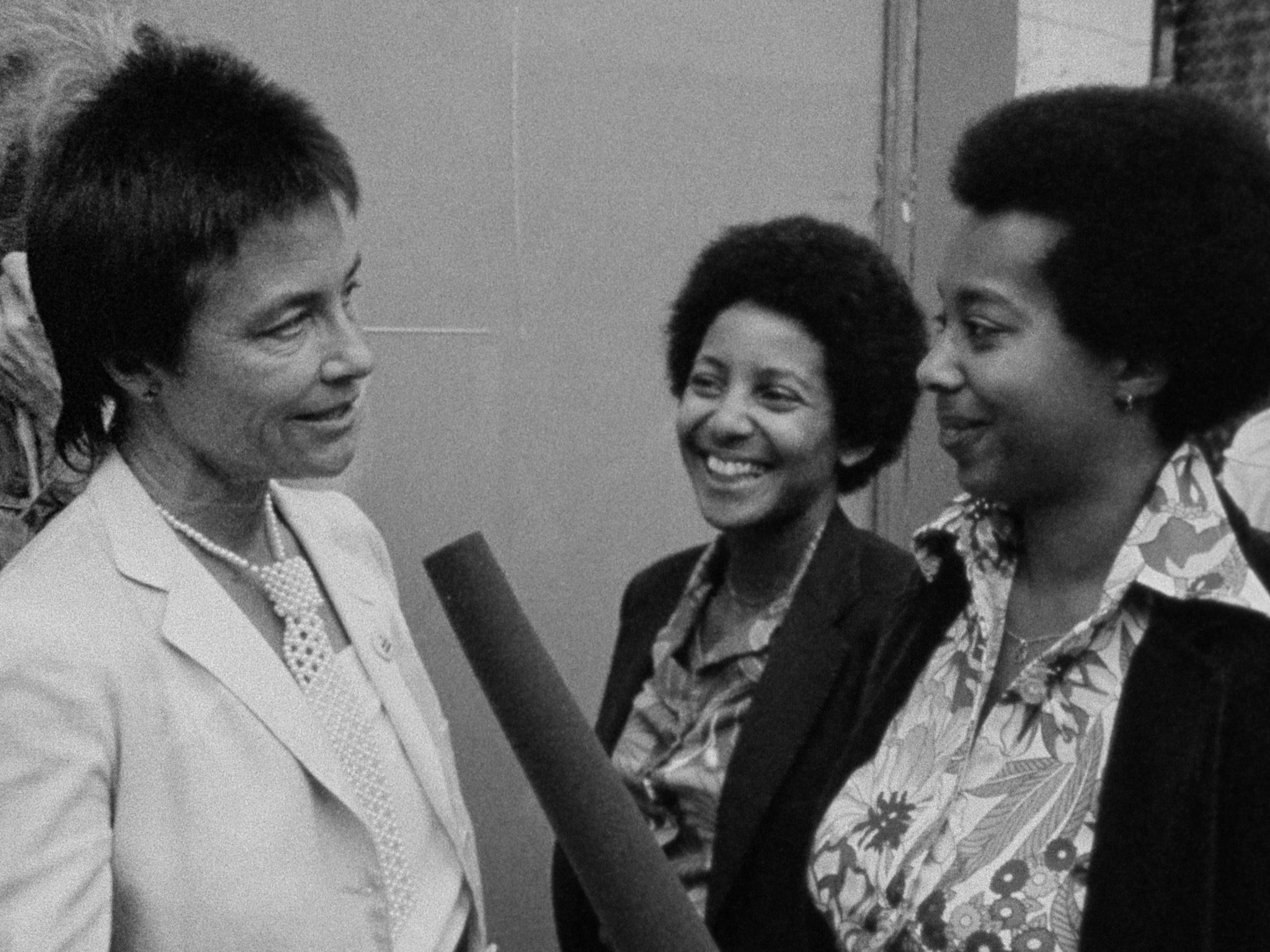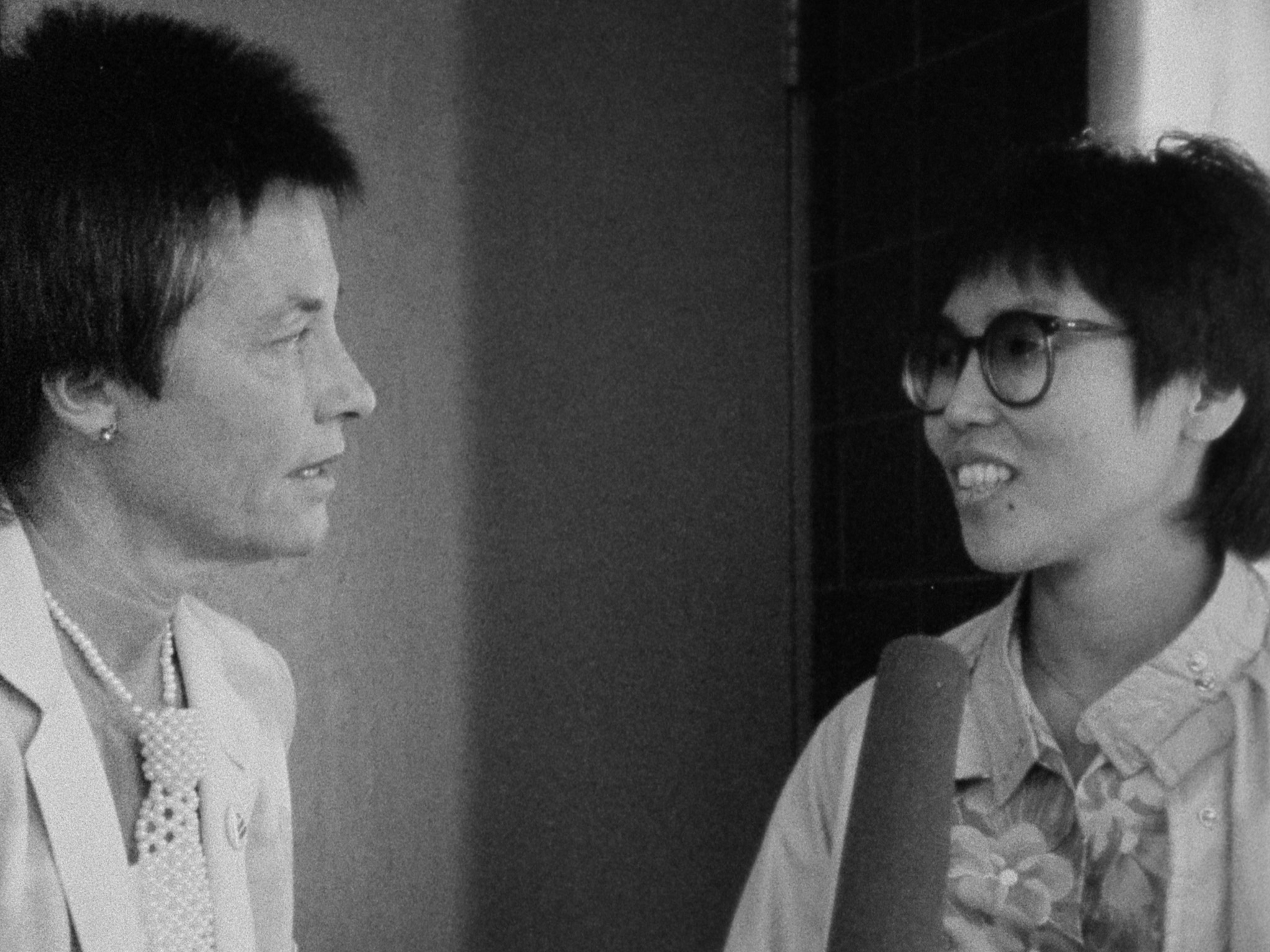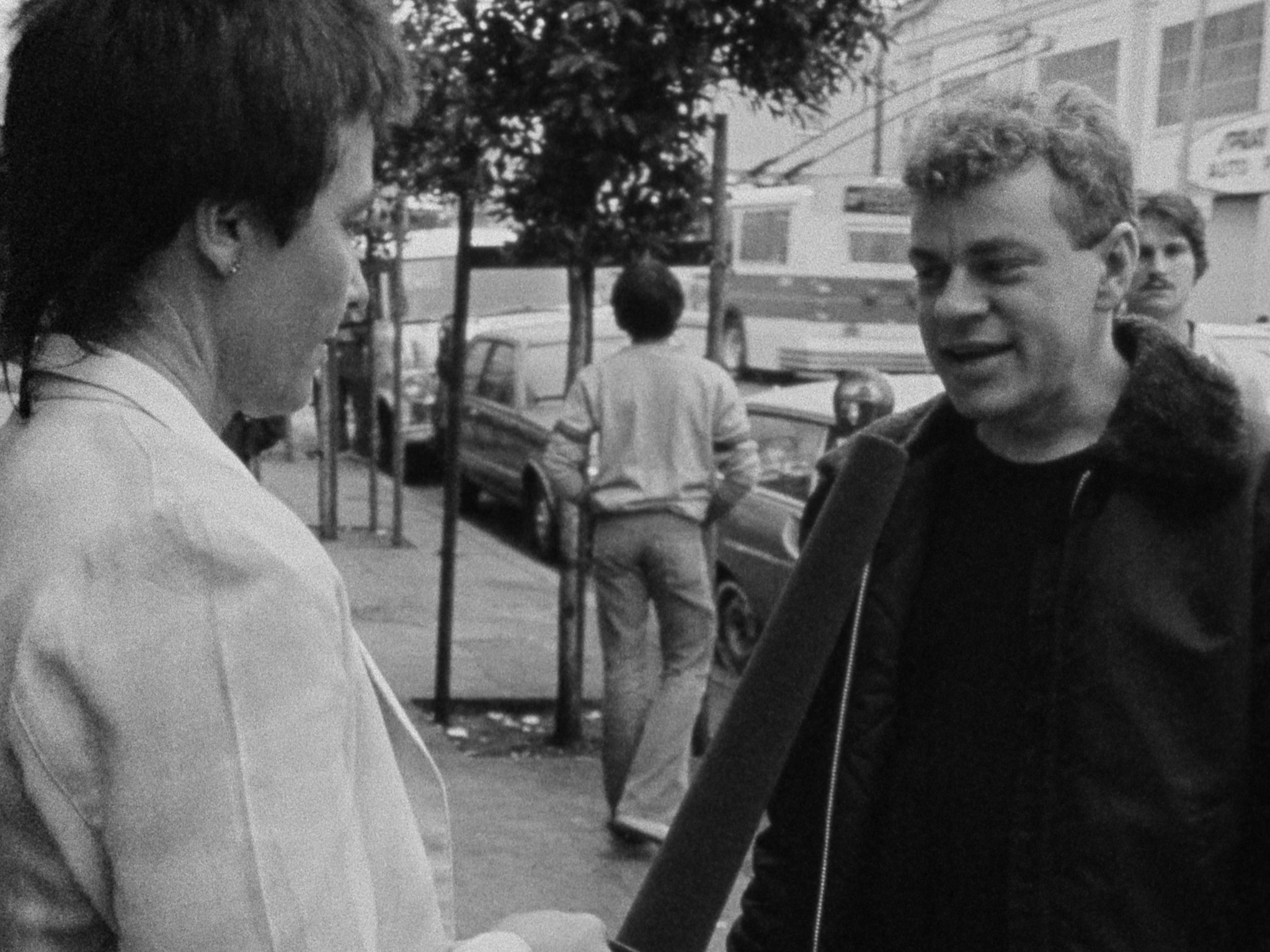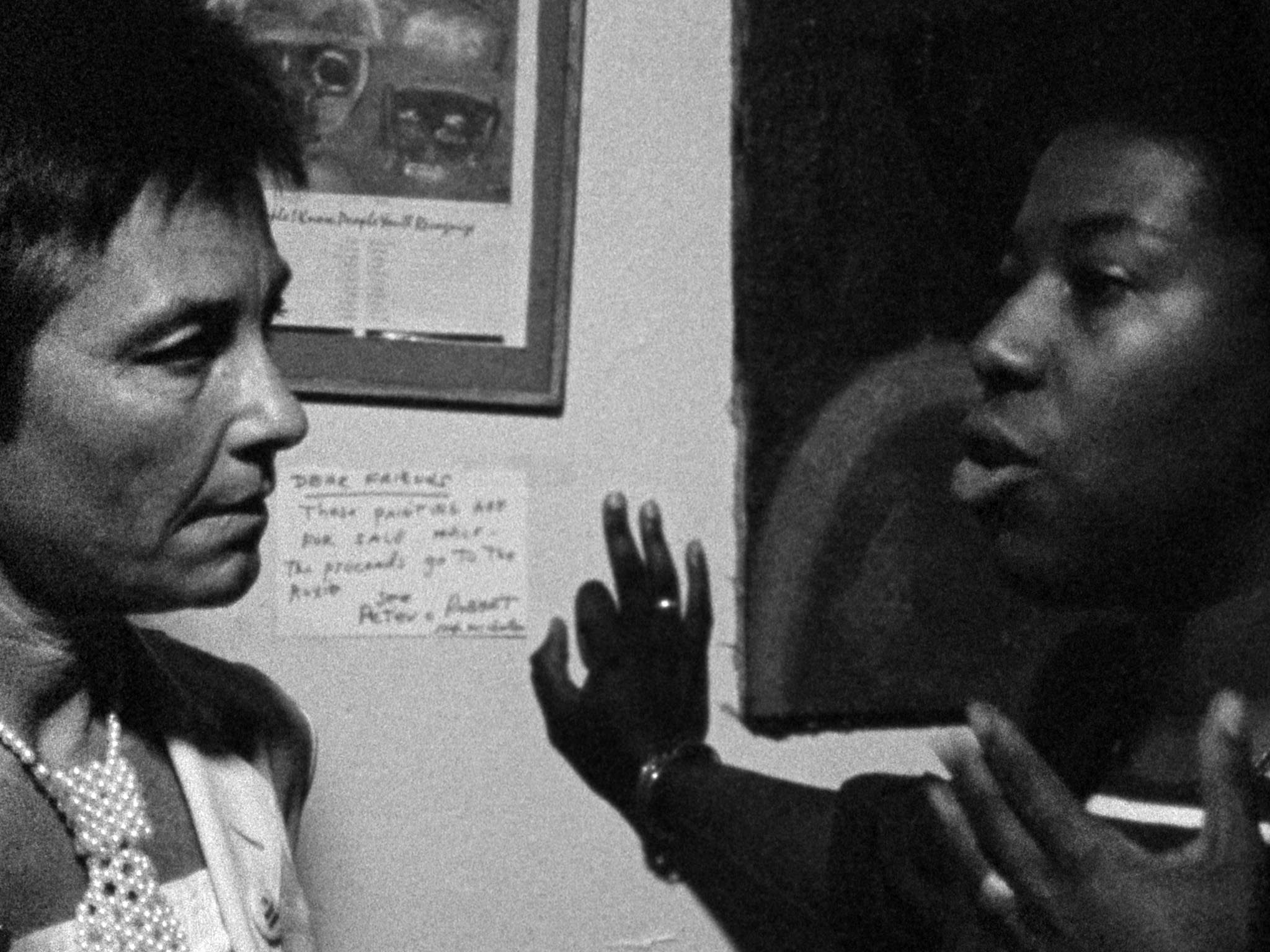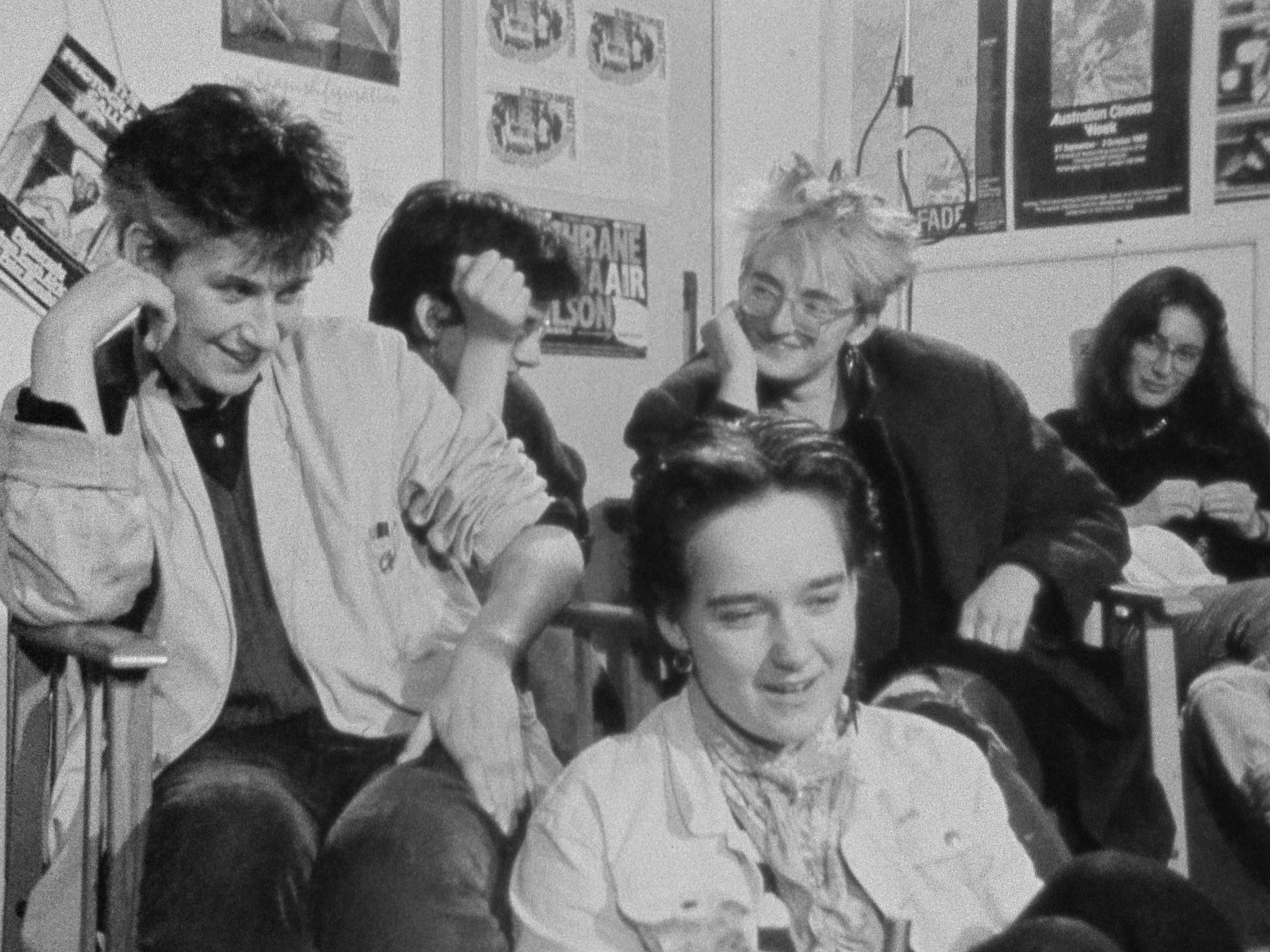Description
Barbara Hammer takes her camera out to film the audiences at screenings of her films – some women only, some mixed – at the London Film-makers' Co-op; at the Roxie Theater, in San Francisco, during Gay Pride Week (where the audience includes fellow filmmakers Curt McDowell and Ulrike Ottinger); at The Funnel, in Toronto; and at McGill University, in Montreal.
"I wanted everyone to speak for herself. I wanted to show the diversity in a women's audience, the sophistication, the thoughtfulness, the fun-loving spirit, the flirtations, the detailed, the subtle. I wanted my audience to make their own film. In a time of national borders and increasing geographic chauvinism, I found images of women transcending boundaries and cultures and at the same time acting as spokespeople for cultural difference." — Barbara Hammer
"Barbara Hammer’s Audience is a fascinating deep cut from the director’s prodigious filmography. Relatively raw in its design, this 16mm diary of audience reactions at retrospectives of Hammer’s work in San Francisco, London, Toronto, and Montreal in the early 1980s bears none of the distinctive visual flourishes and essayistic form one usually finds in her filmmaking. Instead, it comes closer to the original ideal of cinéma vérité as seen in Chronicle of a Summer; informed by the consciousness-raising groups of the feminist movement, the artist herself acts as a catalyst for discussion, rather than fly-on-the-wall observer. Today, Audience serves as an invaluable historical archive, providing quick but complex portraits of lesbian scenes in different cities and countries ... it also functions as a testament to the power of Hammer herself as a figure in lesbian culture, showing how fully she engages audiences to incite new forms of discourse about representation." — Marcos Ortega, Experimental Cinema
This film was preserved by Electronic Arts Intermix and the Academy Film Archive through the National Film Preservation Foundation's Avant-Garde Masters Grant program and The Film Foundation. Funding provided by the George Lucas Family Foundation.
